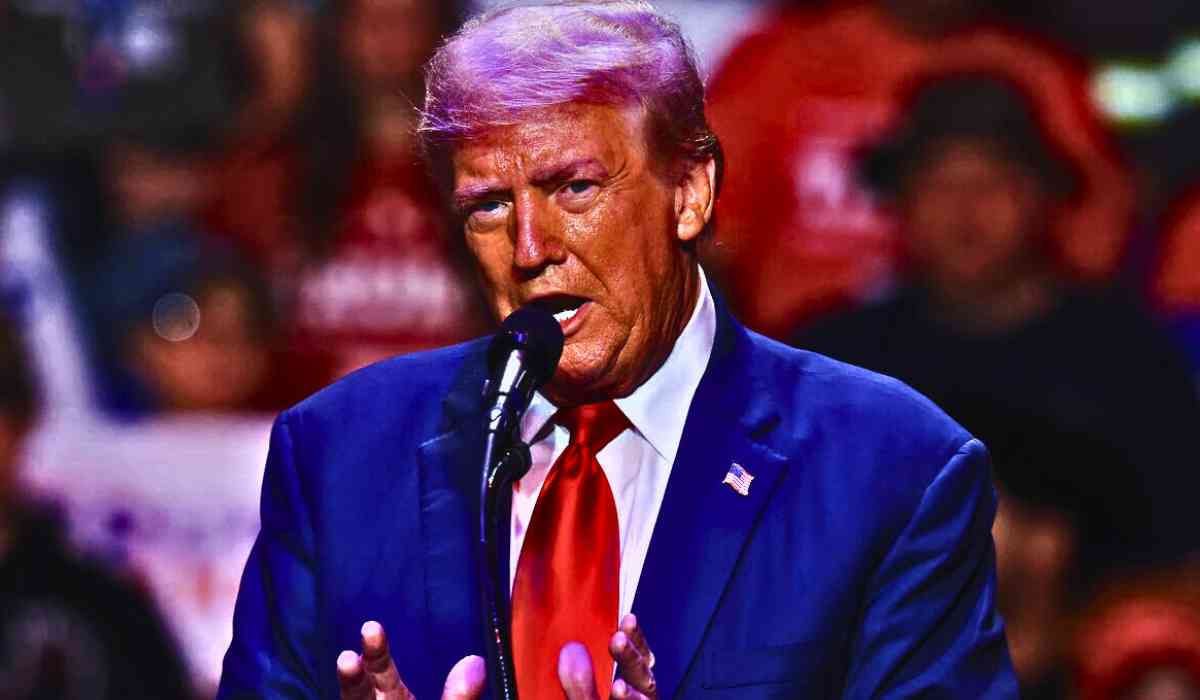The White House has recently spotlighted India's high tariffs on American agricultural products, which stand at a staggering 100%. This announcement comes just ahead of President Donald Trump's much-anticipated "Liberation Day," set for April 2, where he plans to unveil reciprocal tariffs aimed at leveling the playing field for American exports.

What are Tariffs?
Tariffs are taxes imposed by governments on imported goods. When a country imposes high tariffs on products from another country, it makes those products more expensive. This can discourage consumers from buying them, which in turn affects businesses that rely on selling those goods.
India's 100% Tariff
India's 100% tariff on U.S. agricultural products means that if a farmer in the U.S. wants to sell their corn or wheat in India, they have to pay a tax equal to the value of the product. For example, if a farmer sells $1,000 worth of corn, they would need to pay $1,000 in tariffs. This makes it very hard for American farmers to compete in the Indian market because their products become too expensive for Indian consumers.
The White House's Position
During a recent press briefing, White House Press Secretary Karoline Leavitt emphasized that these high tariffs are a significant barrier to trade. She stated that they make it "virtually impossible" for U.S. exporters to do business with India and other countries that impose similar tariffs. Leavitt pointed out that the European Union charges a 50% tariff on American dairy products, Japan imposes a whopping 700% tariff on U.S. rice, and Canada has nearly 300% tariffs on American butter and cheese.
Leavitt's comments reflect a broader frustration within the U.S. government regarding what they perceive as unfair trade practices by other nations. She remarked, "It's time for reciprocity," indicating that the U.S. will respond with its own tariffs to match those imposed by other countries.

Trump's "Liberation Day"
President Trump has branded April 2 as "Liberation Day," a day he believes will mark a new chapter for American trade policies. He argues that imposing reciprocal tariffs will protect American industries from unfair competition and create jobs for American workers. The President is expected to announce specific details about these tariffs during a press conference in the Rose Garden.
Trump's administration has been vocal about its commitment to changing trade dynamics. Since returning to office earlier this year, he has adopted an aggressive stance towards countries with high tariffs against U.S. goods. His strategy aims not only to protect American jobs but also to generate revenue for the federal government.
Potential Economic Impact
While the administration believes these tariffs will benefit American workers, economists have raised concerns about potential negative consequences. High tariffs can lead to increased prices for consumers as businesses may pass on their costs to buyers. This could result in higher grocery bills for families and impact overall consumer spending.
Moreover, retaliatory measures from other countries could escalate into a trade war, where nations continuously impose tariffs on each other's goods. Such conflicts can disrupt global supply chains and hurt businesses worldwide.

India's Response
In response to rising tensions, India has been engaging with U.S. officials to negotiate terms that might ease some of these trade barriers. Reports suggest that Indian negotiators have proposed reducing tariffs on select U.S. agricultural products like almonds and bourbon whiskey, although no comprehensive agreement has been reached yet.
Conclusion
As the clock ticks down to "Liberation Day," all eyes are on President Trump and his administration's next moves regarding international trade policies. The implications of these decisions will resonate not just within the United States but across global markets as well. With high stakes involved, both American consumers and businesses are left wondering how these changes will affect their daily lives and economic future.
The unfolding situation highlights the complexities of international trade relations and the delicate balance between protecting domestic industries and fostering global economic cooperation. As events progress, it will be crucial for all parties involved to navigate these challenges carefully to avoid unintended consequences that could ripple through economies worldwide.
With inputs from agencies
Image Source: Multiple agencies
© Copyright 2025. All Rights Reserved Powered by Vygr Media.

























